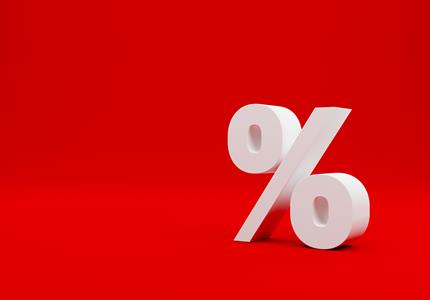

Worried? You should meet Fred
When markets are misbehaving, as they currently are, it can be a useful exercise to take a step back and remind ourselves of the bigger picture.
While the headlines will always focus on the issue of the moment; what matters more to us than the exact outcome of Brexit or Donald Trump’s next tweet is the quality of the assets we own and how we deal with the inevitable tough periods. To illustrate how we think about this, let’s meet Fred. (For those readers just looking for the conclusions, you can jump ahead to our checklist) Fred retired in October 2017 after 50 years of working.
A decade before his retirement, he had £100,000 in savings and after much deliberation with his adviser, he decided to invest into the stock market.
Unfortunately for Fred, his timing was not the best as he chose to invest his money on 12th October 2007. This was the day global markets began falling, and the start of what would become the global financial crisis; and thus, one of the worst days to have bought shares in living memory!
A year later, the papers were declaring “Market crash shakes world” and Fred’s portfolio was down a third to just under £67,000. Understandably, Fred was worried and rang up his adviser to ask what to do. Fortunately, for Fred, he had a good adviser who reassured him that he owned good quality stocks and that he should stick to his original plan of investing for the long term and his retirement.
Fred agreed to leave his portfolio invested and the adviser promised to keep a close eye on his holdings. So how did Fred do in end?
Well when Fred liquidated his portfolio as planned in October 2017, he was very glad that he hadn’t sold nine years previous crystallising that loss of £33,000.
When he came to sell his shares, they returned approximately 144% equivalent to an annual growth rate of 9.3%. Not bad for an unfortunate piece of timing. Even after Fred had paid his fees, he would have walked away with comfortably more than £200,000.
So did Fred get lucky or was his patience prudent? Let’s look at how Fred would have fared with his strategy in the other big stock market declines of the last 50 years:
|
Start Date |
Event |
Trigger |
Market Drop |
10 Year Return |
Annual Rate |
|
August 19871 |
Black Monday |
Iranian missile strike on gulf oil tankers |
-29% |
133% |
8.8% |
|
November 19902 |
Early 1990’s Recession |
Recession compounded by invasion of Kuwait |
-32% |
210% |
12.0% |
|
December 19993 |
Dot Com Bubble |
Collapse of bubble in internet stocks |
-49% |
2% |
0.2% |
|
October 20074 |
Global Financial Crisis |
Collapse of various housing bubbles |
-33% |
144% |
9.3% |
Source: All returns are for monthly data for the MSCI World Index measured in Sterling, including income and capital returns, and excluding any applicable fees, for the periods highlighted in the data table above.
Now Fred’s strategy of patience isn’t perfect by itself. The strategy only broke even, for example, when investors were hit twice within a decade - with the Dot Com bubble bursting and the global financial crisis unfolding some seven years later. It does, however, have a fairly impressive track record when you think that these were the four worst points to have invested in stock markets over the last 50 years.
If you then supplement Fred’s patience with a level headed investment manager who avoids pockets of extreme overvaluation, as we saw in technology stocks in 1999, then you have an investment strategy that has a fighting chance in all four of these scenarios of producing good returns.
What should you do today?
Well, we know that patient investors who own sensible, diverse assets and who have managers they trust, have come through thick and thin before. What we don’t know (and we’ll let you in on an industry secret, nobody really does for sure) is whether the current turmoil will turn out to be another 2008 or just a natural correction in this bull market.
So if you are concerned then go through our checklist below:
The checklist
Are you comfortable that you own a diverse set of quality assets? Do you trust your investment adviser or manager and understand the advice they are giving you? Do you have time to wait through a possible downturn?
How long do I need? All investments that experience capital value volatility need investors to have enough time to allow the highs and the lows to average out and so have a good chance of achieving a positive return.
While there are no hard and fast rules for how long is enough for traditional portfolios of shares and bonds, below are the minimum holding periods we recommend for clients. It is of course important to remember that nothing that hinges on the future as much as investing does, can ever be guaranteed and so is just one aspect of the process of working out whether an investment is right for you.
|
Example Portfolio |
Cautious |
Balanced |
Growth |
Equity |
|
Typical Equity Allocation |
25% |
50% |
75% |
100% |
|
Minimum Recommended Timeframe |
2 to 3 years or longer |
4 to 5 years or longer |
6 to 7 years or longer |
8 to 10 years or longer |
So, if the answer to each of the three checklist questions is yes, then you can follow Fred’s lead and look past whatever the current noise is. If you are not sure then perhaps you should speak to your adviser…
DATA PERIODS:
|
Number |
Start Date |
Max Loss End Date |
10 Year End Date |
|
1 |
31st August 1987 |
30th November 1987 |
31st August 1997 |
|
2 |
31st December 1989 |
30th November 1990 |
31st December 1999 |
|
3 |
31st December 1999 |
28th February 2009 |
31st December 2009 |
|
4 |
31st October 2007 |
31st March 2009 |
31st October 2017 |
All returns are for monthly data for the MSCI World Index measured in Sterling, including income and capital returns, and excluding any applicable fees.
RISK WARNING: The value of investments and the income derived from them may go down as well as up and you may not receive back all the money which you invested. Any information relating to past performance of an investment service is not a guide to future performance. Fluctuations in the rate of exchange may have an adverse effect on the value, price or income of non-sterling denominated investments.


